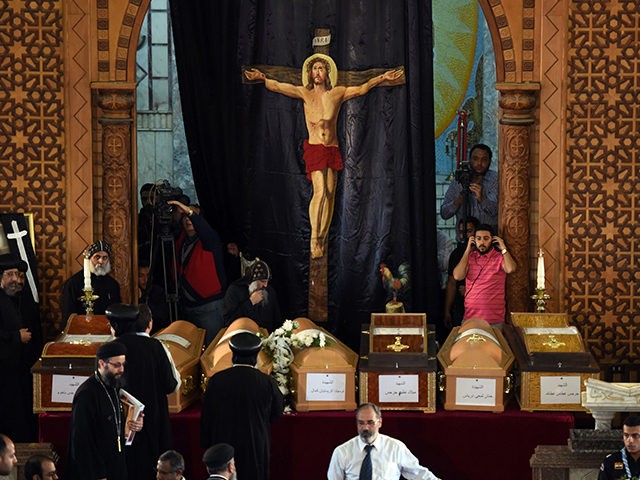TEL AVIV — Egypt’s chairman of the Administrative Prosecution Authority has decided to bring charges against a cleric from Al Azhar University, the most important religious institution in the Sunni world, for allegedly saying in one of his classes that the state can’t execute those accused of murdering Coptic Christians.
The chairman, attorney Firyal Kutub, claims the cleric, who belongs to Al Azhar’s research department, misrepresented one of the prophet Muhammad’s hadiths during a lesson he gave in one of the mosques of Cairo’s suburbs.
“A Muslim can’t be executed for murdering an infidel,” the cleric reportedly answered when asked what the punishment needs to be for an Egyptian citizen accused of murdering a Christian clergyman in Alexandria. “If a Muslim murdered a Christian, he should be punished in every way possible besides being executed because Muslims and Christians are not equal in blood.”
During his questioning, the cleric said that he had only answered a question on a religious issue and didn’t mean for his words to be taken as religious law.
The director of Al Azhar’s research department and the cleric’s superior both testified that the cleric’s comments do not reflect the position of Al Azhar or its research department in regards to the hadith in question.
They added that according to the religious law followed by the institution, “It’s strictly forbidden to steal money from those who believe in a monotheistic religion. If the thief is a Muslim, his hand must be cut off. Therefore, if there is equality in everything related to stealing money, it is also forbidden to murder and the blood of a Muslim and the blood of someone belonging to a monotheistic religion are the same, and both deserve the same punishment.”
It was decided therefore, to charge the cleric with discrimination and encouragement of hatred.
Egyptian Christians were angered in October after media reports indicated that a judge in a local court had refused to accept the testimony of a Christian in a case between two Muslims.
In that case, an Egyptian politician, Mahmoud al-Alayli, was incensed that the local court did not accept the testimony of one of the witnesses after the judge realized that he was a Coptic Christian.
“Is this the general position of the justice system?” asked al-Alayli. “If the answer is yes then why are we complaining about the terrorist activity of IS? In the shadow of such a position, how can a Christian citizen stand up before the justice system and complain about being prevented from prayer or the burning of his church?”

COMMENTS
Please let us know if you're having issues with commenting.